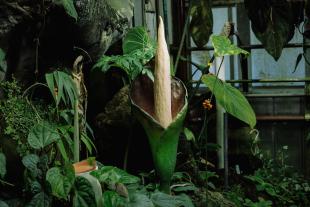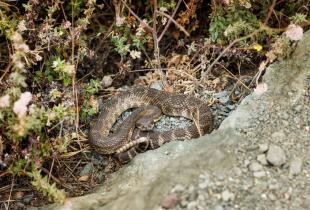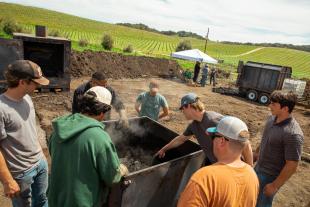Prestigious Fellowships Awarded to Students Studying Effects of Climate Change
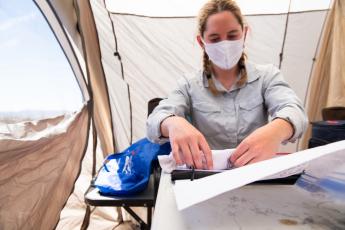
Two Cal Poly graduate students in the biological sciences program were awarded National Science Foundation (NSF) Graduate Research Fellowships to support their ongoing research on responses to environmental changes to plants and animals in California.
Annie Meeder, a first-year graduate student from Paso Robles, with the support of her faculty advisor, Jenn Yost of the Biological Sciences Department, is studying dynamics of Santa Cruz Island vegetation communities and how these communities have changed in response to certain historical disturbances.
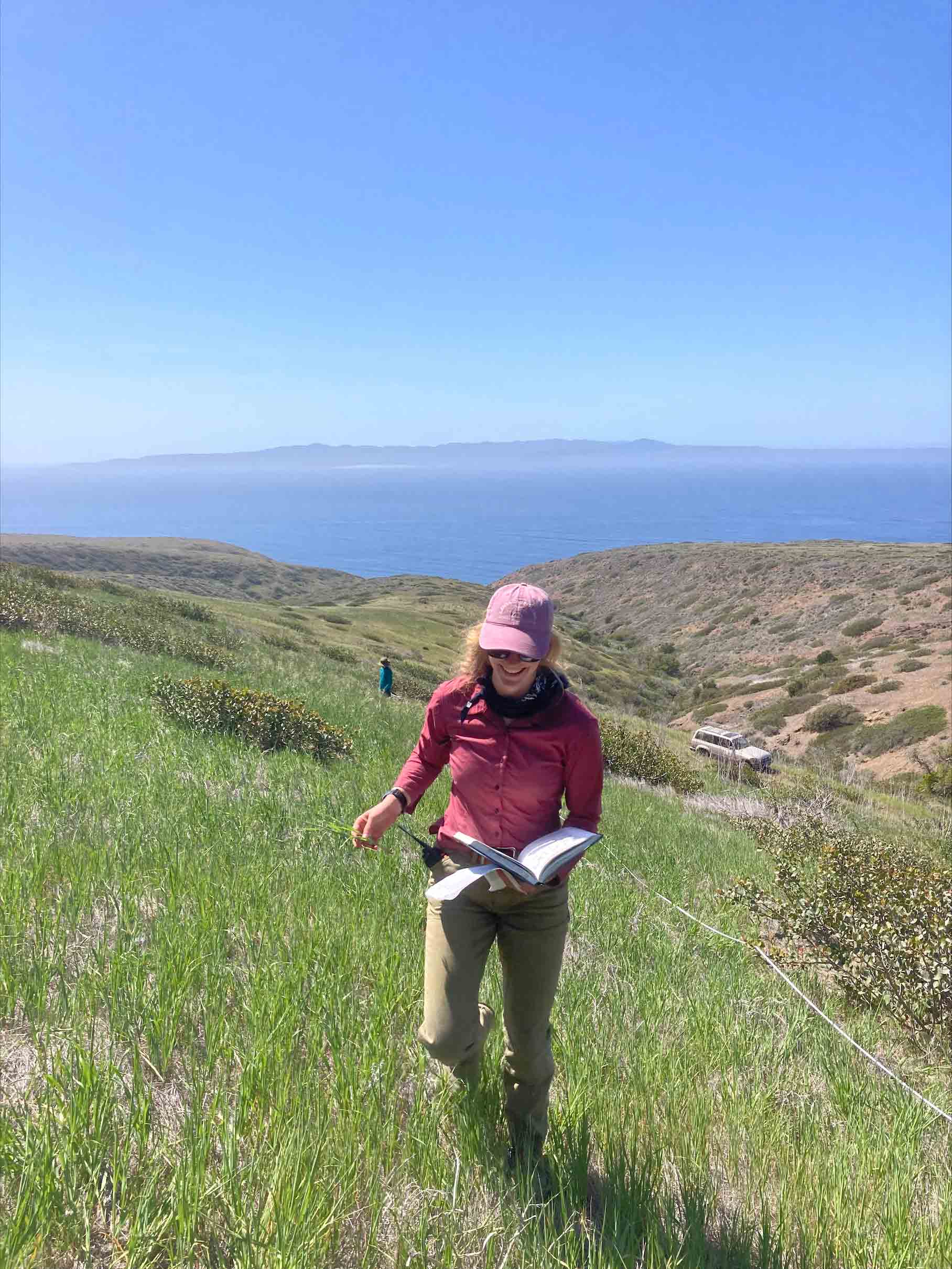
Meeder plans to continue researching in this field and to pursue a doctorate on island vegetation communities and their response to historical, current, and future disturbances. She hopes her research can be used as a model for assessing vegetation dynamics and management strategies in both island systems and mainland areas where vegetation has undergone alteration from overgrazing — and that work can be used to help predict island vegetation response to climate change.
“My first exposure to ecology and science was in high school on a trip to Santa Cruz Island doing volunteer research,” Meeder said. “I now help lead those trips and mentor high schoolers. As a researcher on Santa Cruz Island, I have had an incredible opportunity with Dr. Yost to just collect awesome data, do meaningful work, and give Cal Poly students and faculty alike an incredible research experience.”
Savannah Weaver, a second-year graduate student from San José, plans to continue to study the water balance of reptiles, specifically how water requirements and water-conserving adaptations vary over time and among species and different habitats.
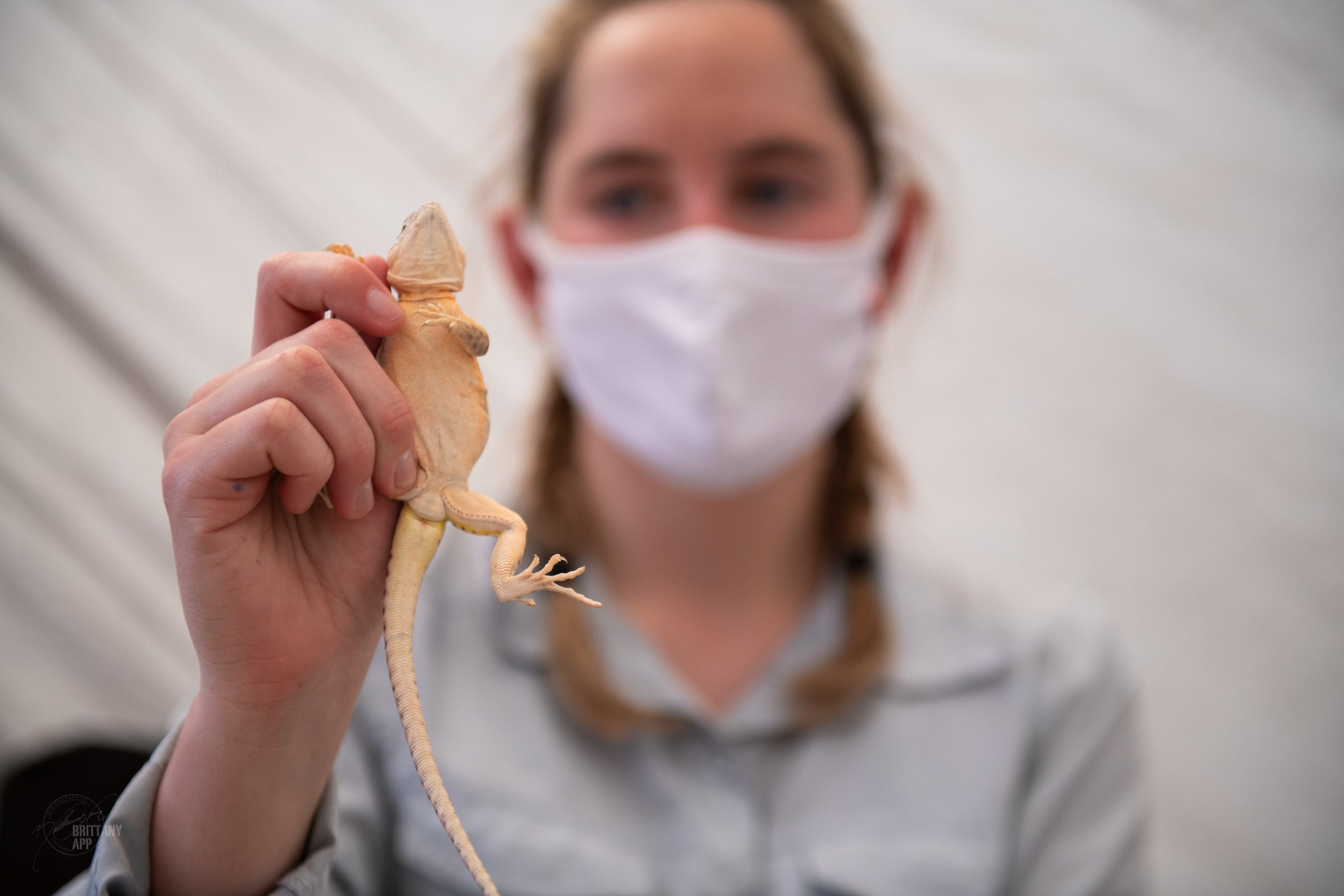
“As the climate crisis continues and drought and heatwaves become more frequent and intense, understanding the water requirements of reptiles, and all animals, will be essential for conservation management,” she said.
Weaver has studied the abundant Western Fence Lizard (Sceloporus occidentalis) under the mentorship of Emily Taylor, professor in the Biological Science Department. Weaver hopes to study other lizards and snakes in her doctoral program.
“I've always loved nature, and I’ve become increasingly passionate about the conservation of wildlife and wild landscapes,” Weaver said. “When I started graduate school with Dr. Taylor, I realized that very little was known about reptile water balance, despite its importance. I read everything I could about it and was immediately hooked, because there was so much information that I felt was missing and that I could try to figure out.”
Two Cal Poly alumni, Gabriel Medina-Kim (Computer Science, ’20) and Nicole Siguenza (Biochemistry and Microbiology, '20) were also awarded fellowships.
Medina-Kim is in the second year of the doctoral program in science and technology studies at Rensselaer Polytechnic Institute in Troy, New York. He was previously selected for the CSU Chancellor’s Doctoral Incentive Program, a program to support the development of future faculty and support doctoral education. Siguenza is in her second year at UC San Diego, pursuing a doctorate in biomedical sciences.
“I am thrilled to see our students and alumni be recognized for their outstanding work in their fields and receive support from the NSF to continue that work,” said Bob Crockett, Cal Poly’s administrator in charge of Research, Economic Development and Graduate Education. “These students are tremendous examples of what can be done at Cal Poly when our students and faculty can collaborate.”
The NSF Graduate Research Fellowship Program (GRFP) recognizes and supports outstanding graduate students in NSF-supported science, technology, engineering and mathematics disciplines who are pursuing research-based master’s and doctoral degrees at accredited U.S. institutions.
Fellowships provide students with a three-year annual stipend of $34,000 along with a $12,000 cost of education allowance for tuition and fees, as well as access to opportunities for professional development available to NSF-supported graduate students.
Want more Learn by Doing stories in your life? Sign up for our monthly newsletter, the Cal Poly News Recap!

